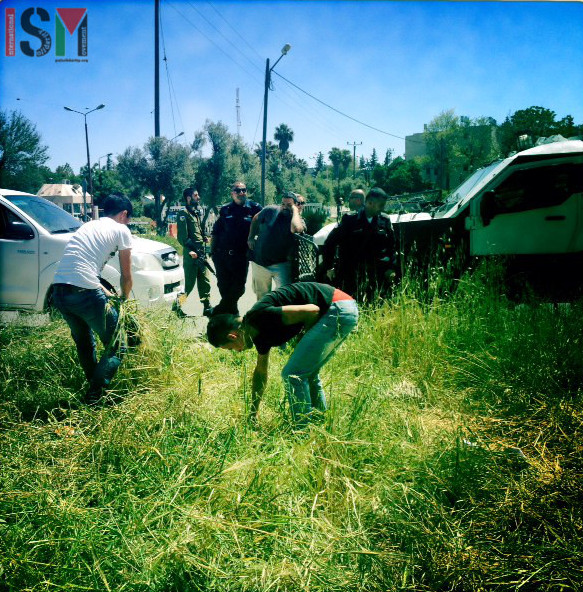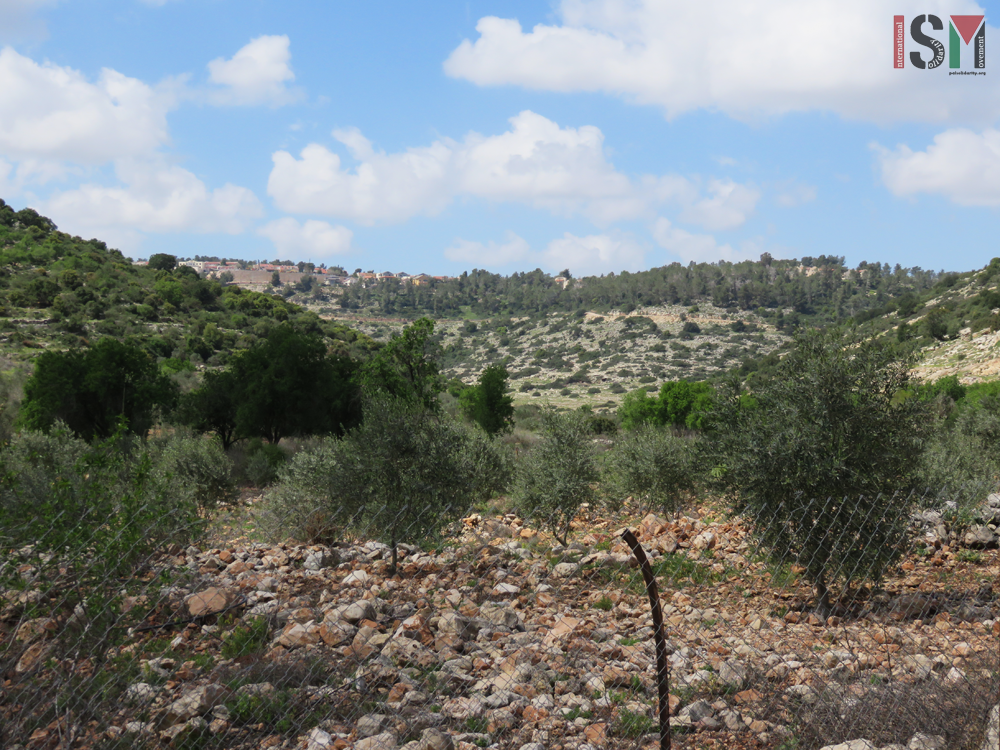Tag: Settlers
-
Harvesting While Harassed- Jabari family face military and settlers to gather their crops
3rd May 2015 | International Solidarity Movement, Khalil Team | Hebron, Occupied Palestine The Jabari family owns land sandwiched in between the illegal settlements of Kiryat Arba and Givat Ha’vot. In 2001, settlers illegally took over part of the land to erect a synagogue-tent on the Jaabari-family land. All settlements are illegal under international law,…
-
South Hebron Hills – farming under occupation
27th April 2015 | International Solidarity Movement, Team Al Khalil | South Hebron Hills, Occupied Palestine Located in the tip of the West Bank, the South Hebron Hills are dotted with farming and shepherd communities. We are currently in the wheat harvest season and the children are spending their last few weeks at school before…
-
Resistance to the destruction of olive trees in Wadi Qana
Tuesday, 17th March 2015, four farmers in the Salfit valley of Wadi Qana were issued with notices that they had 48 hours to remove their olives trees or they would be removed at their own cost. Failure to execute the orders are punishable by imprisonment, or fines up to the maximum penalty of the law.…



